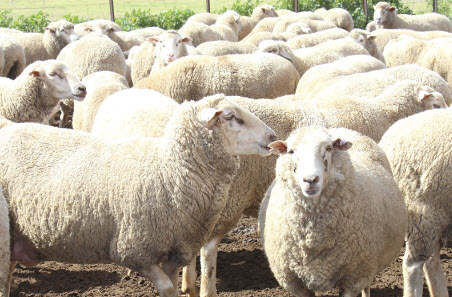$3 million to deliver health check on South Australia’s sheep flock

A $3 million investment during the next three years will help to reduce the incidence and costs of endemic health conditions affecting South Australia’s sheep flock.
Meat & Livestock Australia (MLA) Managing Director, Richard Norton, today unveiled the ‘Reducing the Financial Impact of Endemic Conditions in Sheep’ project, at the Growing SA conference in Hahndorf.
Twenty one sheep health issues will be recorded and communicated to producers, including key conditions such grass seeds, pneumonia, sheep measles, rib fractures and arthritis.
“Data generated at Bordertown, Murray Bridge and Lobethal facilities will be fed back to producers,” Mr Norton said.
“This feedback will be supported with information about how to address and manage conditions on-farm that are critical to help reduce the prevalence and costs of managing endemic conditions found in sheep in South Australia.”
The project is being delivered by MLA Donor Company (MDC) and SA Sheep Industry Fund (SIF) and builds on the success of the Enhanced Abattoir Surveillance program that has been operating in SA for 10 years. The collaboration has been facilitated by the SA Sheep Industry Blueprint.
The 'Reducing the Financial Impact of Endemic Conditions in Sheep' project will be rolled out in collaboration with Thomas Foods International (TFI), JBS Australia (JBS), Primary Industries and Regions SA - Biosecurity SA, the Davies Research Centre at the University of Adelaide and several SA farming systems groups. Animal Health Australia is also supporting the project
SA Sheep Advisory Group Chair, Leonie Mills, said, these health issues cost Australian producers about $140 million each year in lost production
She said a key component of the project will be to identify the on and off-farm costs of the five animal health conditions that have the highest impact in SA.
“We aim to reduce these costs by improving the flow of animal health information to sheep producers and equip them with knowledge and skills to implement cost-effective interventions that can be readily applied on-farm," she said.
“A PhD student will investigate the epidemiology of certain key diseases with the aim to highlight the causes and, if possible, the on-farm predisposing factors.”
Mr Norton said the project will be Australia’s biggest state-level sheep monitoring program and cover more than 80 per cent of sheep slaughtered in SA.
He said it is built on the National Sheep Health Monitoring Project and outcomes and learnings will be available to the rest of the industry.
“We estimate that collecting highly valuable sheep health data manually for this project will cost less than 10 cents per head,” he said.
“An important outcome from this project will be a business case for continued investment from across the sheepmeat supply chain in collection of animal health data.
"Supply chain stakeholders are more likely to adopt new data collection technologies if these are cost effective and efficient.”
Aside from reducing the incidence of endemic sheep diseases in SA, the project will improve collaboration in the SA sheepmeat supply chain, provide consistent animal monitoring at processing, give producers access to timely carcass condition data and increase whole industry awareness of the importance of animal health.



